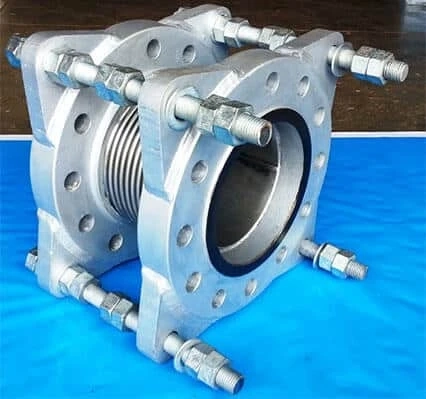In the realm of industrial piping systems, the choice between metal expansion joints and rubber alternatives is a crucial decision with significant implications for performance, durability, and cost-effectiveness. While rubber expansion joints have their merits, there\'s a compelling case to be made for their metal counterparts. Let\'s delve into why metal expansion joints stand out as superior solutions across a spectrum of applications.
The Versatility of Metal Expansion Joints
Metal expansion joints come in various types, each tailored to specific needs and operating conditions. From high-temperature environments to intricate piping configurations, metal expansion joints offer versatility that rubber joints often struggle to match.
High Temperature Resistance: In industries where extreme temperatures are commonplace, such as petrochemical and power generation plants, metal expansion joints excel. Unlike rubber, which can degrade and lose elasticity under high temperatures, metal expansion joints maintain their structural integrity and functionality, ensuring uninterrupted operation even in the most demanding environments.
Specialized Designs: Metal expansion joints come in a myriad of designs to accommodate different types of movement and pressure conditions. Gimbal expansion joints, elbow pressure balanced expansion joints, externally pressurized expansion joints, axial expansion joints, universal expansion joints, and hinged expansion joints are just a few examples of the specialized configurations available. These tailored designs optimize performance and longevity, making metal expansion joints indispensable in complex piping systems.
Robust Construction: Metal expansion joints are built to withstand harsh operating conditions, including high pressures, corrosive fluids, and mechanical stress. Manufacturers like Flexpert Bellows, a leading expansion joint manufacturer in India, utilize advanced fabrication techniques and high-quality materials to ensure durability and reliability. Heavy wall expansion joints, designed for applications requiring extra strength and resistance, exemplify the robust construction of metal expansion joints.
Performance Benefits Of Rubber
While rubber expansion joints have their place in certain applications, metal expansion joints offer distinct performance advantages that make them a preferred choice in many scenarios.
Enhanced Durability: Metal expansion joints have a longer service life compared to rubber joints, which are prone to degradation from exposure to UV radiation, ozone, and chemical attack. Metal bellows expansion joints, constructed from corrosion-resistant alloys, outlast their rubber counterparts, reducing maintenance costs and downtime.
Greater Pressure Capacity: Pump connectors expansion joints and in-line pressure balanced expansion joints are specifically designed to withstand high pressures without compromising performance. The inherent strength of metal materials allows for higher pressure ratings than rubber, making metal expansion joints essential for applications where system integrity is paramount.
Improved Sealing: Lateral expansion joints and other metal expansion joint designs provide superior sealing capabilities, minimizing the risk of leaks and fugitive emissions. The tight tolerances and precision engineering of metal expansion joints ensure a reliable seal even under fluctuating conditions, enhancing safety and regulatory compliance.
Conclusion
While rubber expansion joints have their advantages, the superior performance, durability, and versatility of metal expansion joints make them the preferred choice for many industrial applications. Whether it\'s high-temperature environments, demanding pressure conditions, or intricate piping configurations, metal expansion joints offer a reliable solution that ensures optimal performance and longevity. With a wide range of specialized designs and robust construction, metal expansion joints continue to be indispensable components in modern piping systems.



